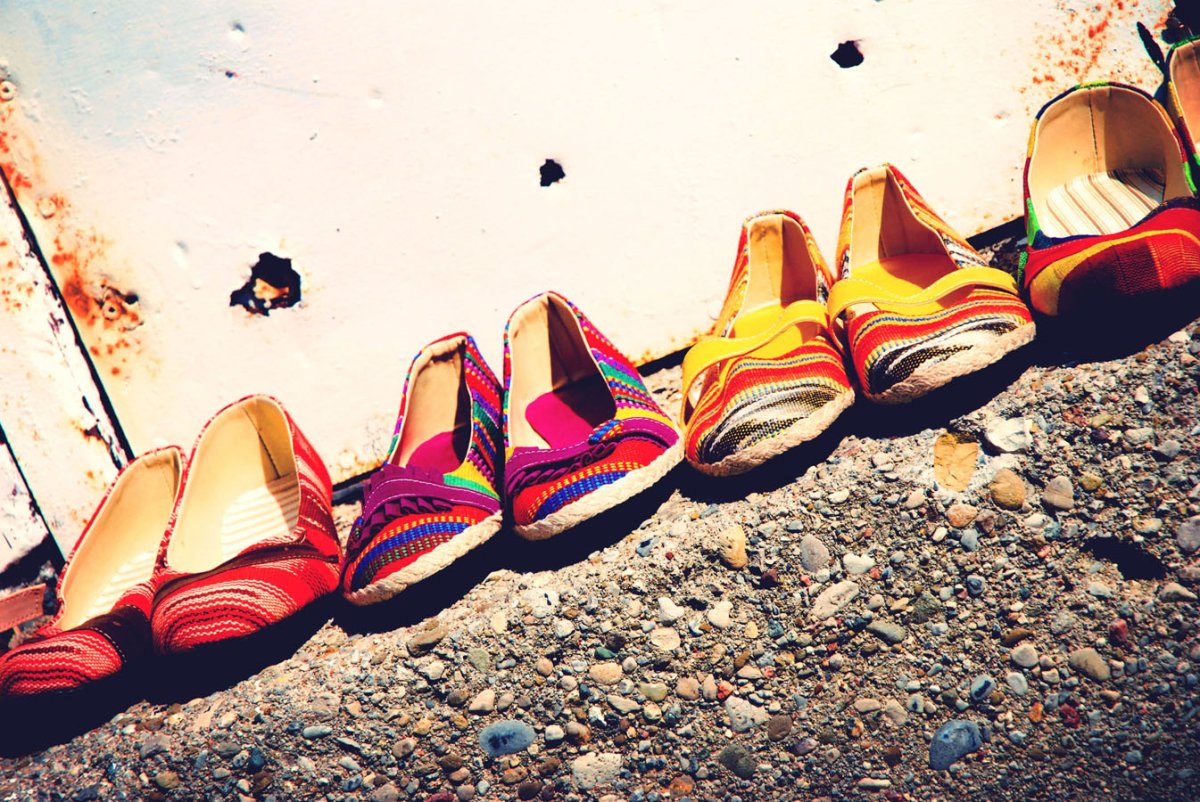TORONTO – Canadian fashion designers and organizations are showcasing sustainable, ethical fashion as an alternative to large global brands that profit from hazardous working conditions and unfair labour practices.

On Wednesday morning an eight-story garment factory crumbled to the ground, killing over 300 people.
The collapse of Dhaka’s Rana Plaza has drawn international attention to notoriously unsafe working conditions and brought renewed scrutiny to Bangladesh’s $20 billion clothing industry.
The factory manufactured clothing for major clothing lines around the world, including The Children’s Place, Spain’s Mango, Britain’s Primark, Italy’s Benetton and Canadian brand Joe Fresh.
The news has prompted many Canadians to question the clothing on their back, where it’s made, and under what conditions.
Read more: Bangladesh garment factory collapse raises questions about consumer choices
But for Canadian consumers, finding ethical, sustainable fashion isn’t necessarily easy.
Even if a garment label reads “Made in Canada” the components of the item could come from elsewhere, said Brenna Donoghue, president of marketing for Ethical Ocean, a Toronto-based company featuring fair trade, organic and eco-friendly products.
Vanja Vasic, executive director of Fashion Art Toronto (FAT) agrees the “Made in Canada” label is unclear. “How much of it is made in Canada versus somewhere else,” Vasic asked. “It’s a concern that you don’t necessarily know where a product is made,” she said.
Friday night in Toronto, FAT – now in its eighth year – is showcasing Fashion Takes Action, a non-profit organization that promotes and advocates for sustainability in the fashion industry.
Tonight’s event downtown Toronto features three designers – NationWares, Local Buttons and the Azadi Project – with the theme of global connectivity and “ethically sound fashion produced by artisans around the world.”
“More designers are thinking about sustainability, how their clothes are made and where their materials are from,” said Vasic.
NationWares works with international partners designing fair trade jewellery and accessories made from local, renewable resources. The non-profit organization promotes fair employment for people with exceptional needs, including disabilities, HIV/AIDS and extreme poverty.
Local Buttons features refurbished materials found in Port-au-Prince’s second-hand markets. The Canadian company promotes sustainable, fair-wage jobs in Haiti, while breathing “new life into old materials.”
Azadi Project works to promote the craft of disadvantaged artisans in Bangladesh, Pakistan and Uzbekistan, through fair wages and safe work environments.
In addition to supporting companies that adhere to ethical workplace practices, experts also suggest consumers buy local.
Every year FAT features local and emerging designers. “A lot of them are literally creating their own clothing,” said Vasic. “It’s a great way to support local design and take a stand against unfair labour practices.”
Read more: 5 ways consumers can be more socially conscious in shopping
Local shops may also be able to provide consumers with information on where garments are made.
Compared to large stores, small local shops “can really give you a far better sense of how those products were made, even the conditions of the factories where they were made,” said Dara O’Rourke, co-founder of GoodGuide, an online resource that gives products health, environmental and ethical ratings.
Everyone wants high-quality products at a good price, but there are costs to those low prices, O’Rourke said.
“If you walk into a Joe Fresh or Wal-Mart or a Sears or a Target or whatever and you see a polo shirt and it’s $5.99…the next thought should be: ‘What is the company doing to lower their cost of production so much? Are they outsourcing the responsibility on treating workers fairly? Are they outsourcing and externalizing the environmental costs of this?”‘ he said.
O’Rourke urges consumers to hold brands and retailers accountable, by asking companies where their products are manufactured, and using public forums – such as Twitter and Facebook – to ask questions.
“The thing that we’ve seen in the U.S. that is most effective actually is people tweeting their questions or putting their questions on Facebook or circulating their questions among their friends and using social media,” he said.
With files from the Canadian Press






Comments